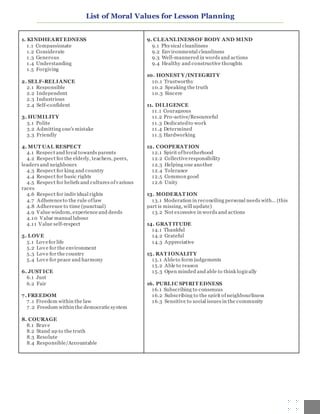Are you feeling overwhelmed, constantly on edge, or struggling to find enjoyment in daily life? If so, you may be experiencing symptoms of anxiety depression. In this article, we will explore what exactly these symptoms are and how they can manifest in our lives. Understanding and identifying these signs is the first step towards finding relief and taking control of your mental well-being. So, let’s delve into the topic and shed light on: “Ano ang sintomas ng anxiety depression?”
Ano ang sintomas ng anxiety depression?
Anxiety and depression are two common mental health conditions that can significantly impact a person’s quality of life. When these two conditions occur together, it is known as anxiety depression. Anxiety depression can manifest in various ways and can affect individuals differently. In this article, we will explore the symptoms of anxiety depression and how it can be identified and managed.
1. Understanding anxiety and depression
Before delving into the symptoms of anxiety depression, it is essential to understand what anxiety and depression are individually. Anxiety is a natural response to stress or a perceived threat. It is characterized by feelings of worry, fear, unease, and restlessness. Depression, on the other hand, is a mood disorder that leads to persistent feelings of sadness, loss of interest, and a lack of motivation.
2. Symptoms of anxiety depression
When anxiety and depression coexist, their symptoms can overlap, making it challenging to distinguish between the two. Some common symptoms of anxiety depression include:
- Persistent feelings of sadness
- Intense worry or fear
- Difficulty concentrating or making decisions
- Loss of interest or pleasure in activities
- Changes in appetite and weight
- Insomnia or excessive sleep
- Fatigue or lack of energy
- Restlessness
- Irritability or mood swings
- Physical symptoms such as headaches, stomachaches, or muscle tension
- Thoughts of self-harm or suicide
2.1 Physical symptoms of anxiety depression
Anxiety depression can also manifest in various physical symptoms, including:
- Headaches or migraines
- Stomachaches or digestive issues
- Rapid heartbeat or palpitations
- Shortness of breath or hyperventilation
- Chest pain or discomfort
- Dizziness or lightheadedness
- Muscle tension or aches
- Excessive sweating
- Changes in appetite and weight
2.2 Cognitive symptoms of anxiety depression
In addition to physical symptoms, anxiety depression can also affect a person’s cognitive functioning. Some cognitive symptoms include:
- Difficulty concentrating or making decisions
- Memory problems
- Negative or self-deprecating thoughts
- Racing thoughts
- Intrusive or obsessive thoughts
3. Causes of anxiety depression
The exact causes of anxiety depression are not fully understood. However, several factors can contribute to the development of this condition. Some potential causes include:
- Genetics: Having a family history of anxiety or depression can increase the risk of developing anxiety depression.
- Brain chemistry: Imbalances in certain neurotransmitters, such as serotonin and dopamine, can play a role in anxiety depression.
- Traumatic experiences: Past traumatic events or abuse can increase the likelihood of experiencing anxiety depression.
- Chronic illness: Dealing with a chronic illness or experiencing chronic pain can contribute to anxiety depression.
- Stressful life events: Major life changes, financial difficulties, or relationship problems can trigger anxiety depression.
4. Seeking help for anxiety depression
If you or someone you know is experiencing symptoms of anxiety depression, it is crucial to seek help from a medical professional. A healthcare provider, such as a doctor or mental health specialist, can accurately diagnose anxiety depression and develop an appropriate treatment plan. Treatment options for anxiety depression may include:
- Psychotherapy: Therapy, such as cognitive-behavioral therapy (CBT), can help individuals identify and change negative thought patterns and behaviors.
- Medication: Antidepressant medications may be prescribed to help manage the symptoms of anxiety depression.
- Lifestyle changes: Adopting a healthy lifestyle, including regular exercise, a balanced diet, and sufficient sleep, can contribute to overall well-being.
- Support groups: Joining support groups or seeking support from loved ones can provide reassurance and understanding.
- Stress management techniques: Learning and practicing stress management techniques, such as deep breathing exercises or mindfulness meditation, can help reduce anxiety and depression symptoms.
5. Self-care strategies for anxiety depression
In addition to seeking professional help, individuals with anxiety depression can also incorporate self-care strategies into their daily routine. These strategies can help manage symptoms and promote overall well-being. Some self-care strategies for anxiety depression include:
- Engaging in activities you enjoy: Finding joy in hobbies or activities that bring you happiness and a sense of accomplishment can help combat feelings of sadness and improve mood.
- Exercising regularly: Physical activity releases endorphins, which are natural mood boosters. Regular exercise can reduce anxiety and depression symptoms.
- Practicing relaxation techniques: Techniques such as deep breathing, progressive muscle relaxation, or guided imagery can help calm the mind and reduce anxiety.
- Maintaining a healthy lifestyle: Eating a balanced diet, getting enough sleep, and avoiding excessive alcohol or substance use can contribute to improved mental health.
- Establishing a support system: Surrounding yourself with supportive friends and family members who can provide emotional support can make a significant difference in managing anxiety and depression.
Anxiety depression is a complex condition that requires understanding and proper management. By recognizing the symptoms of anxiety depression, seeking professional help, and incorporating self-care strategies, individuals can effectively manage their mental health. Remember, reaching out for support is not a sign of weakness but a courageous step towards better well-being.
24 Oras: Sintomas ng Depression
Frequently Asked Questions
What are the symptoms of anxiety and depression?
Common symptoms of anxiety and depression can vary from person to person, but here are some common indicators:
How do anxiety and depression affect the body?
Anxiety and depression can have physical symptoms that affect the body such as:
Is it normal to have anxiety and depression at the same time?
Yes, it is possible for someone to experience both anxiety and depression simultaneously. This is often referred to as comorbidity.
Can anxiety and depression be treated?
Yes, both anxiety and depression are treatable conditions. Treatment options may include therapy, medication, or a combination of both based on the severity of the symptoms.
How long do anxiety and depression symptoms typically last?
The duration of symptoms can vary from person to person. Some individuals may experience symptoms for a short period, while others may have more long-term symptoms. Seeking appropriate treatment can help in managing and reducing the duration of these symptoms.
Can lifestyle changes help with anxiety and depression?
Yes, making certain lifestyle changes can be beneficial for managing anxiety and depression. These may include regular exercise, maintaining a balanced diet, getting enough sleep, practicing relaxation techniques, and seeking social support.
Final Thoughts
Anxiety depression can manifest in various symptoms. These may include persistent feelings of worry or fear, trouble concentrating or sleeping, loss of interest in activities, changes in appetite or weight, irritability, restlessness, and physical symptoms such as headaches or stomachaches. It can also lead to feelings of hopelessness or worthlessness and thoughts of self-harm or suicide. If you or someone you know is experiencing these symptoms, it is important to seek help from a medical professional as soon as possible. Remember, understanding the symptoms of anxiety depression is the first step towards getting the support and treatment needed.




